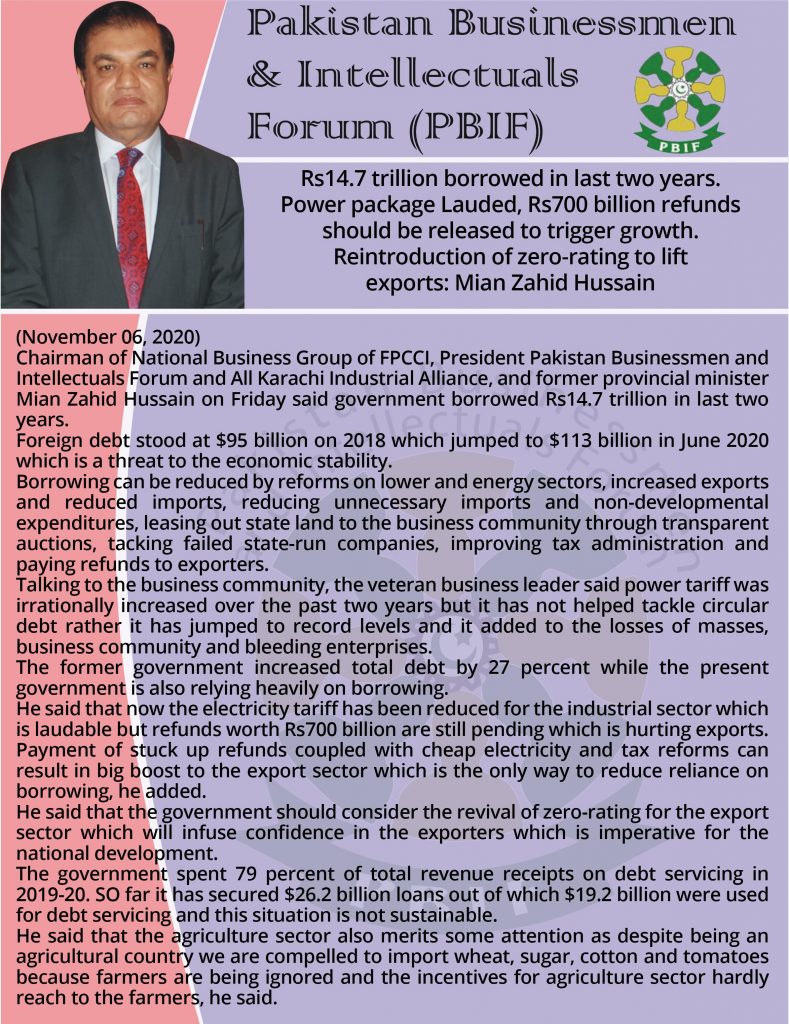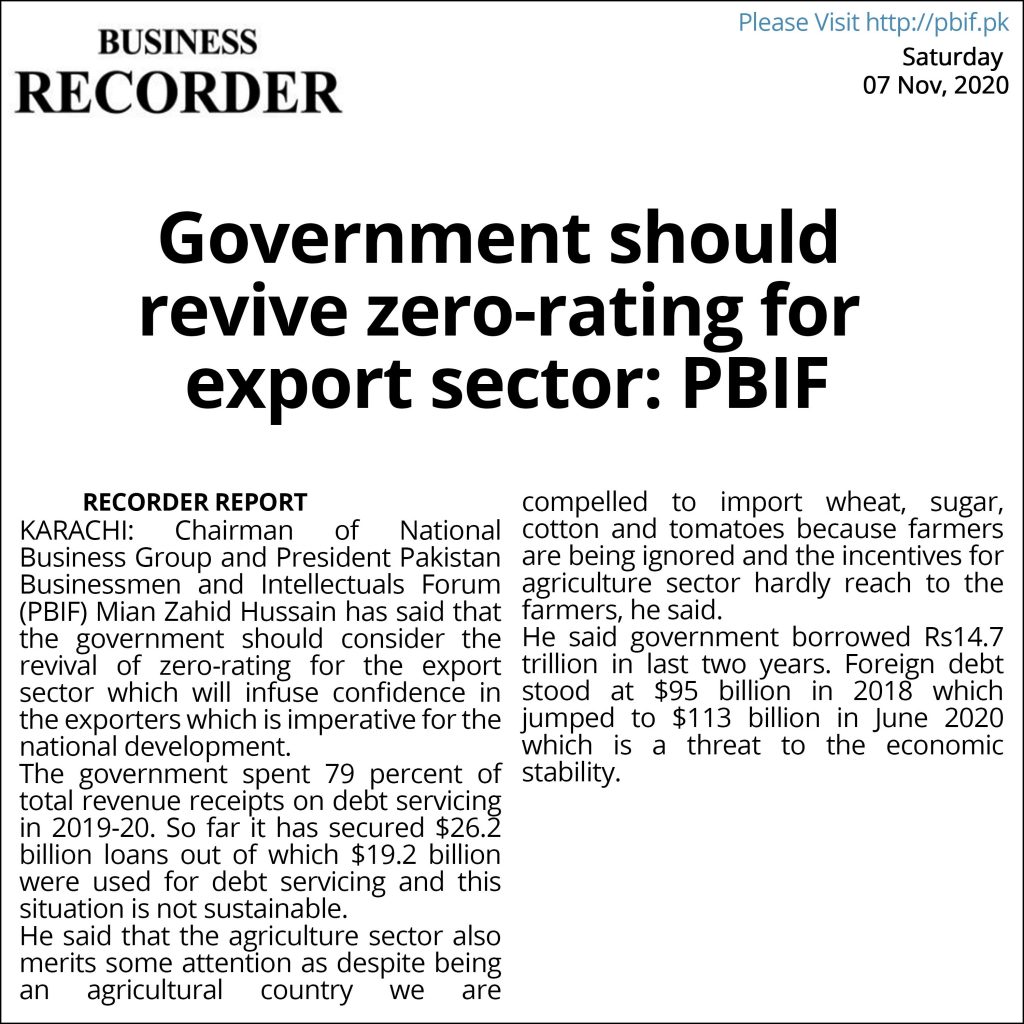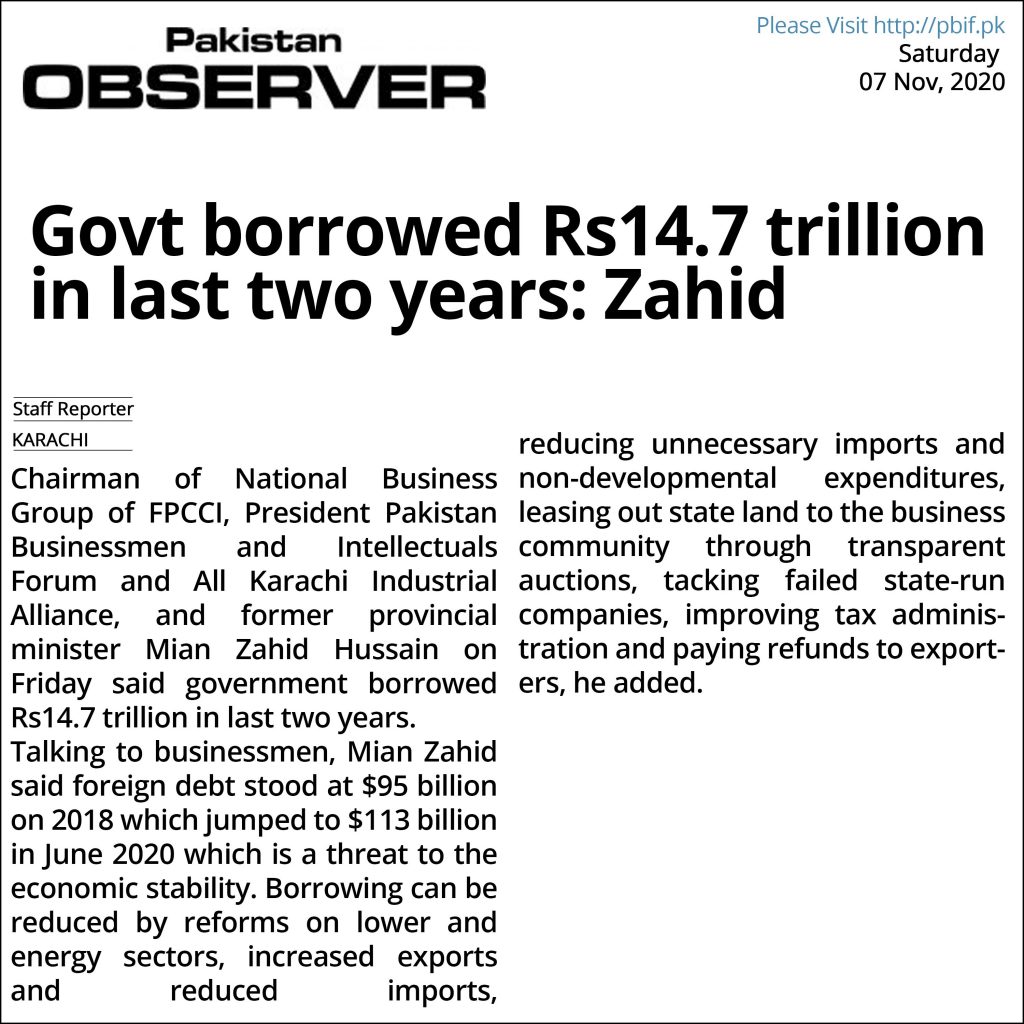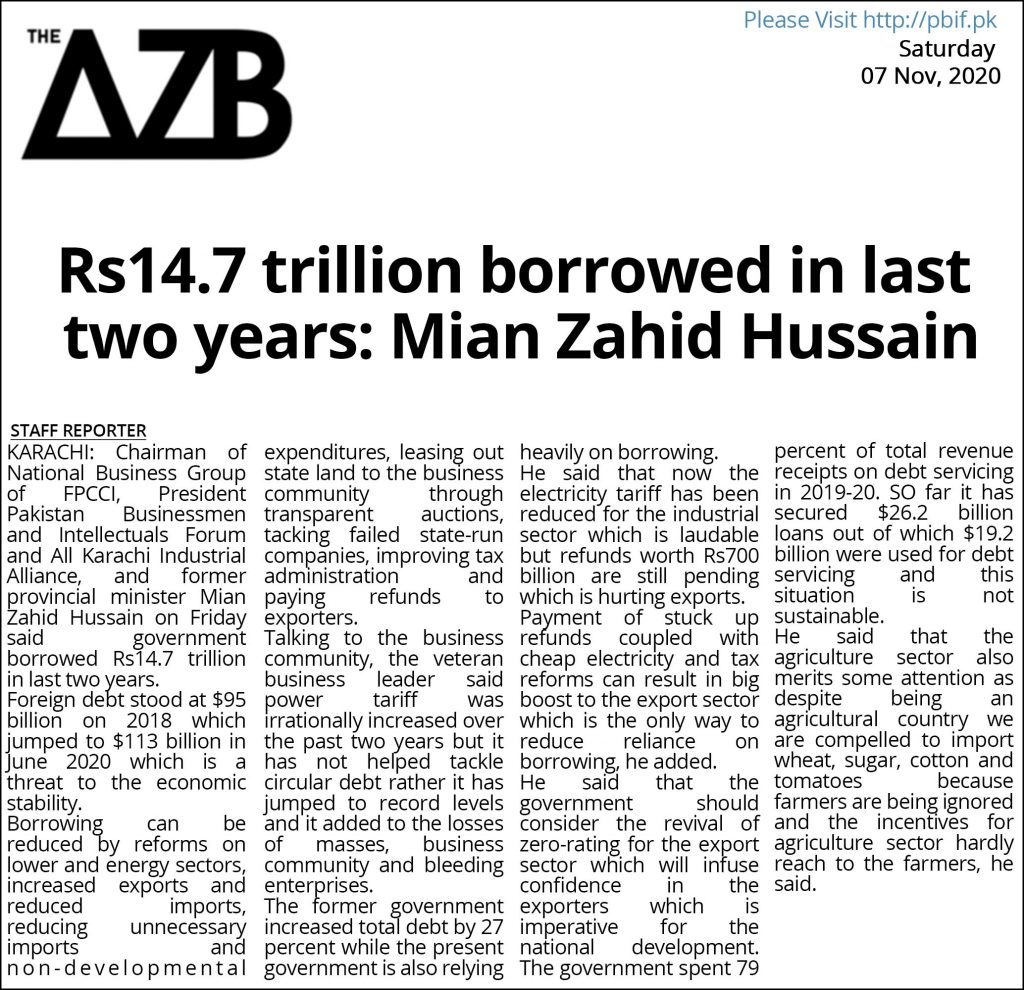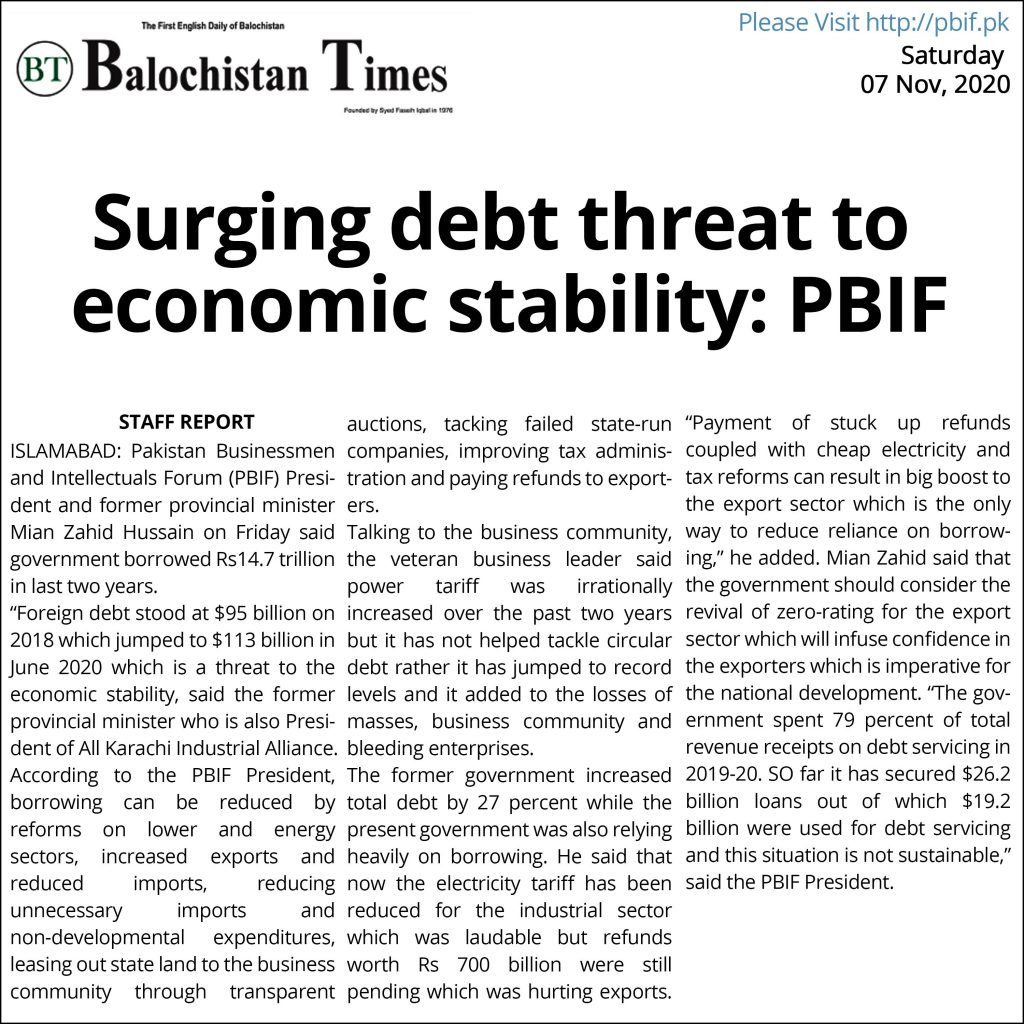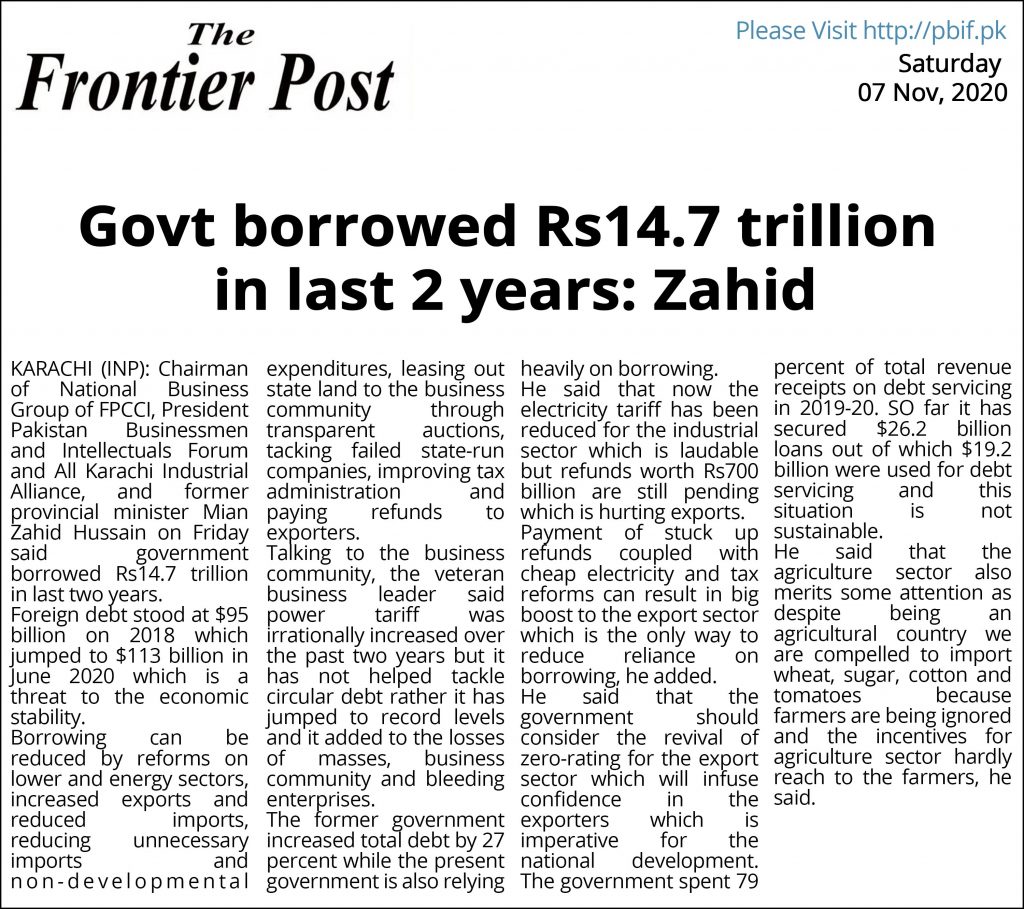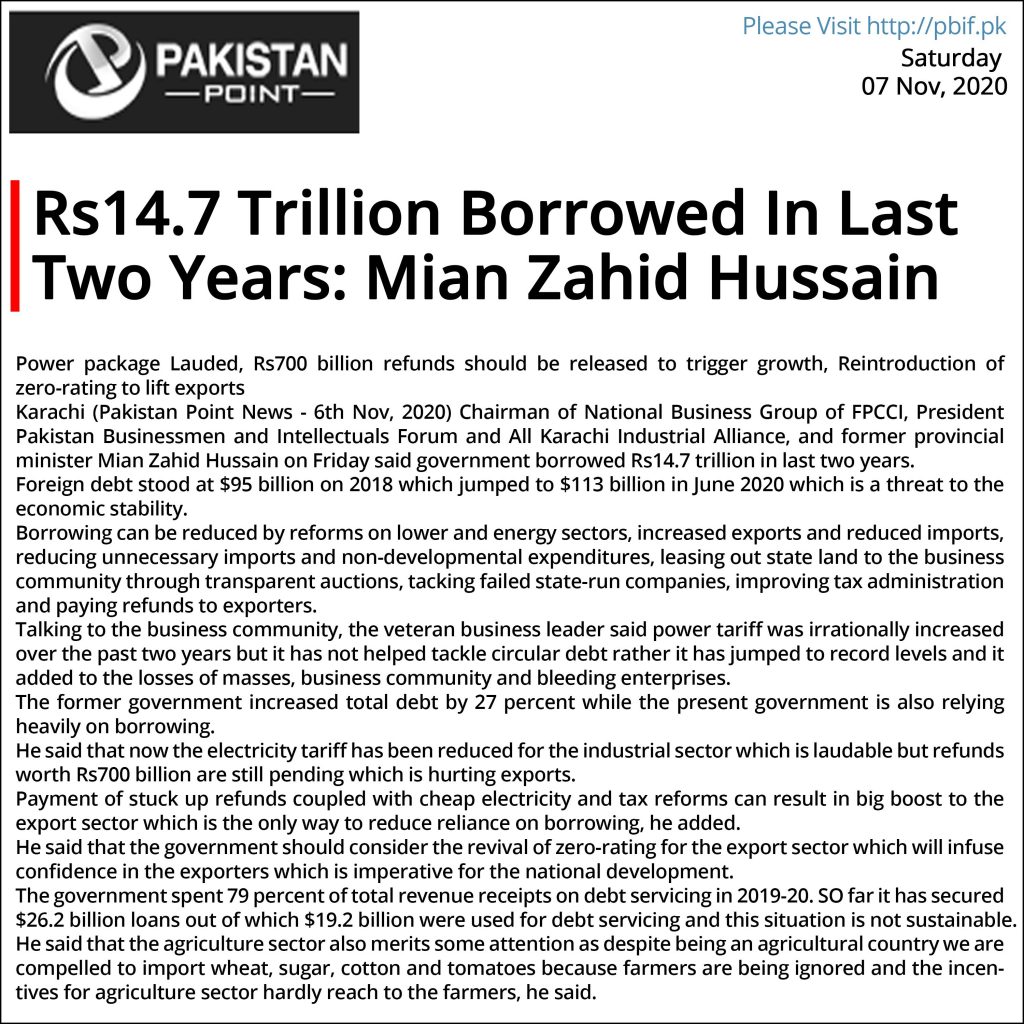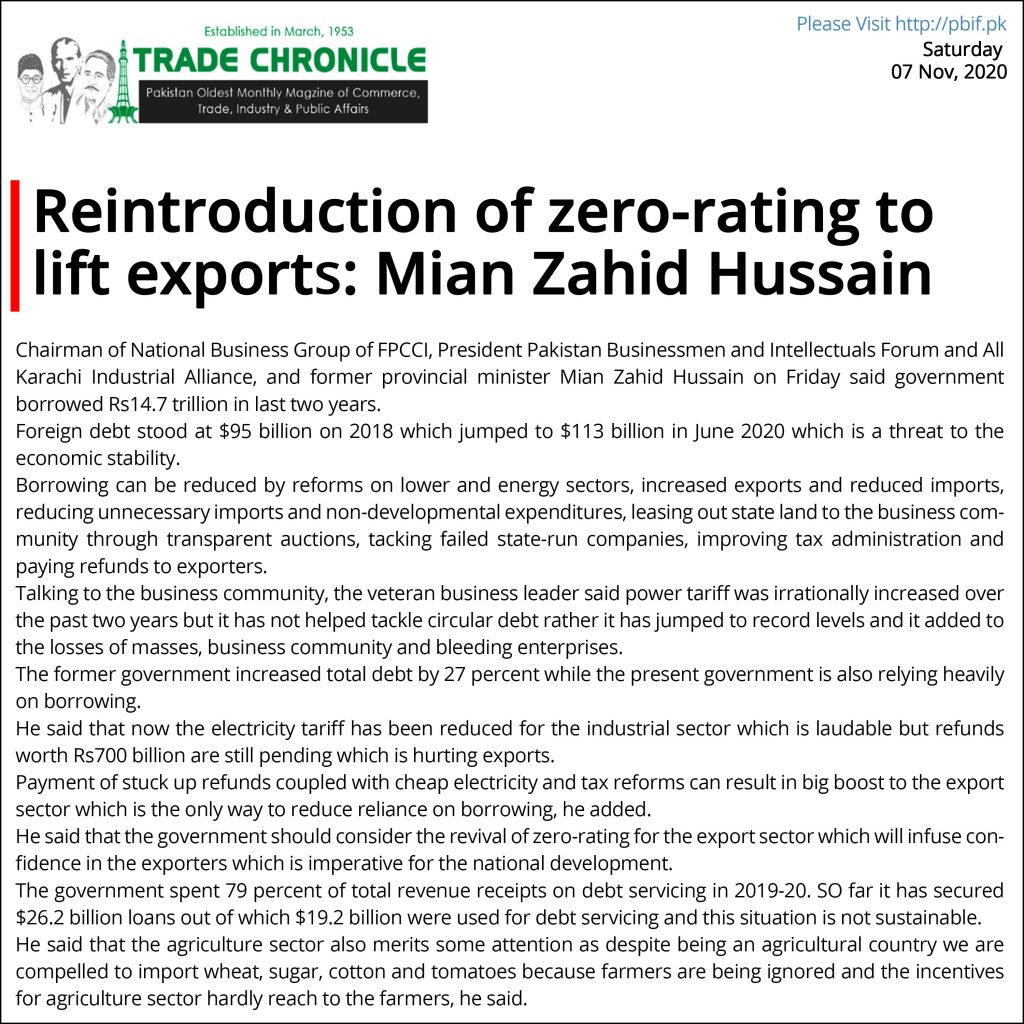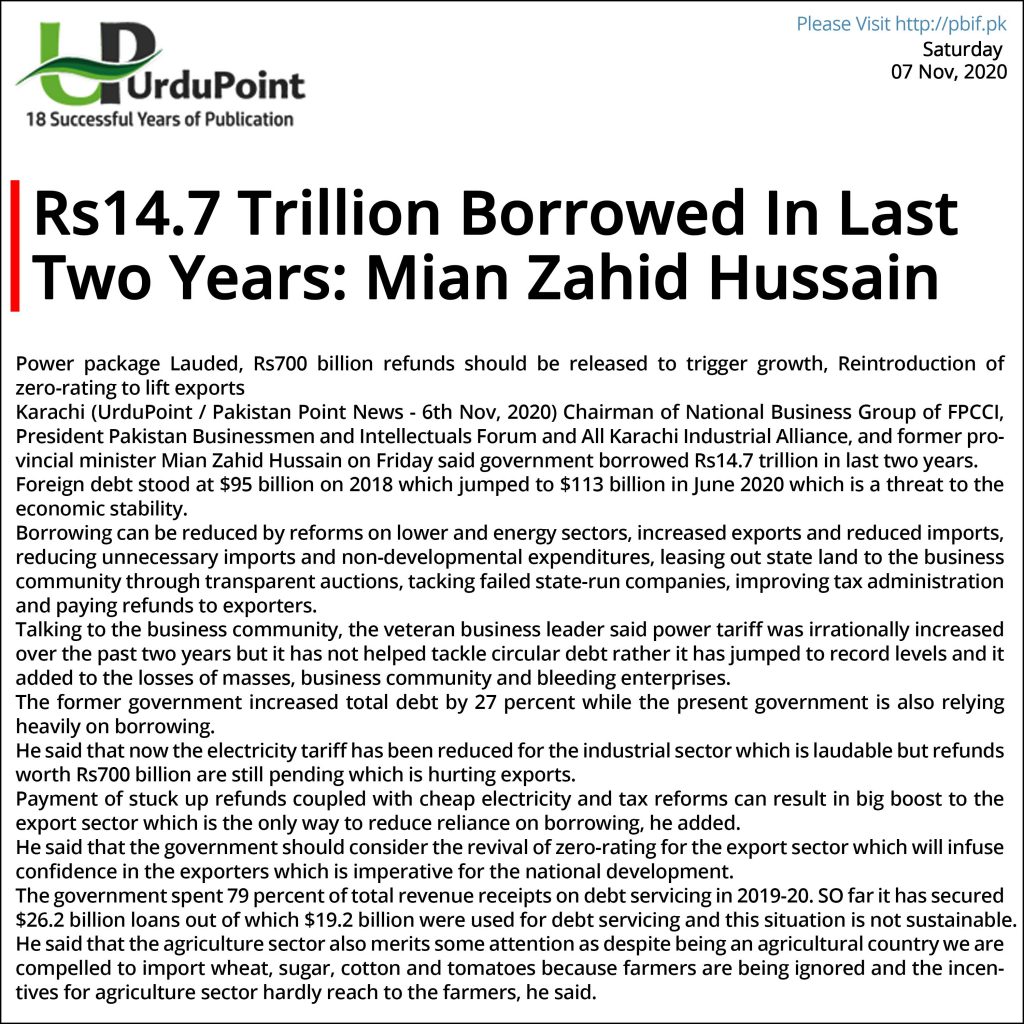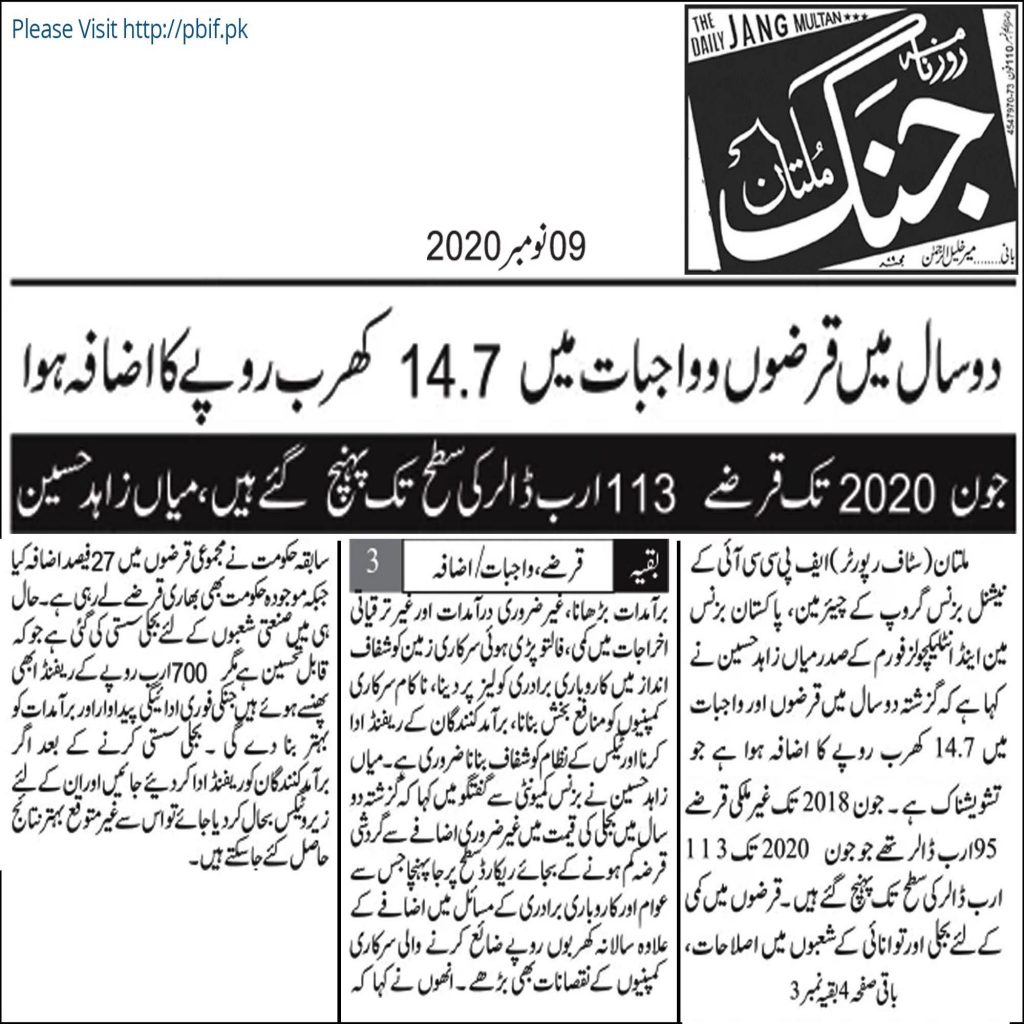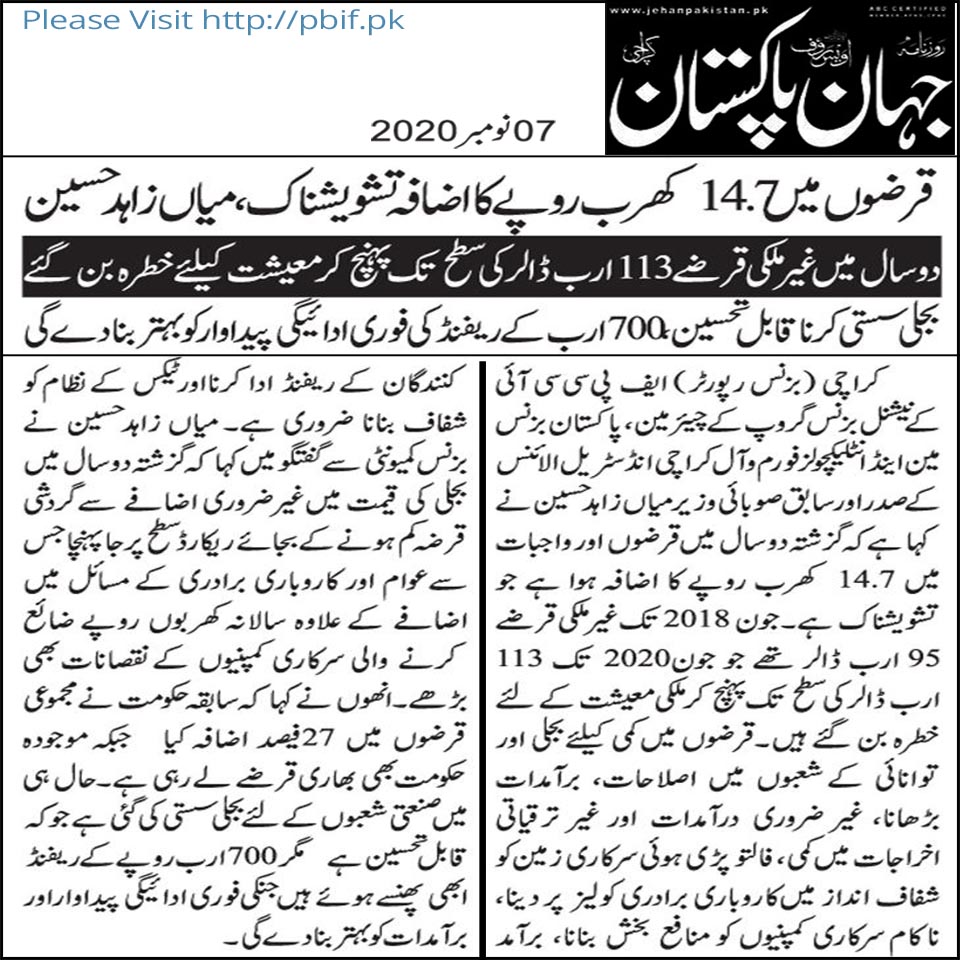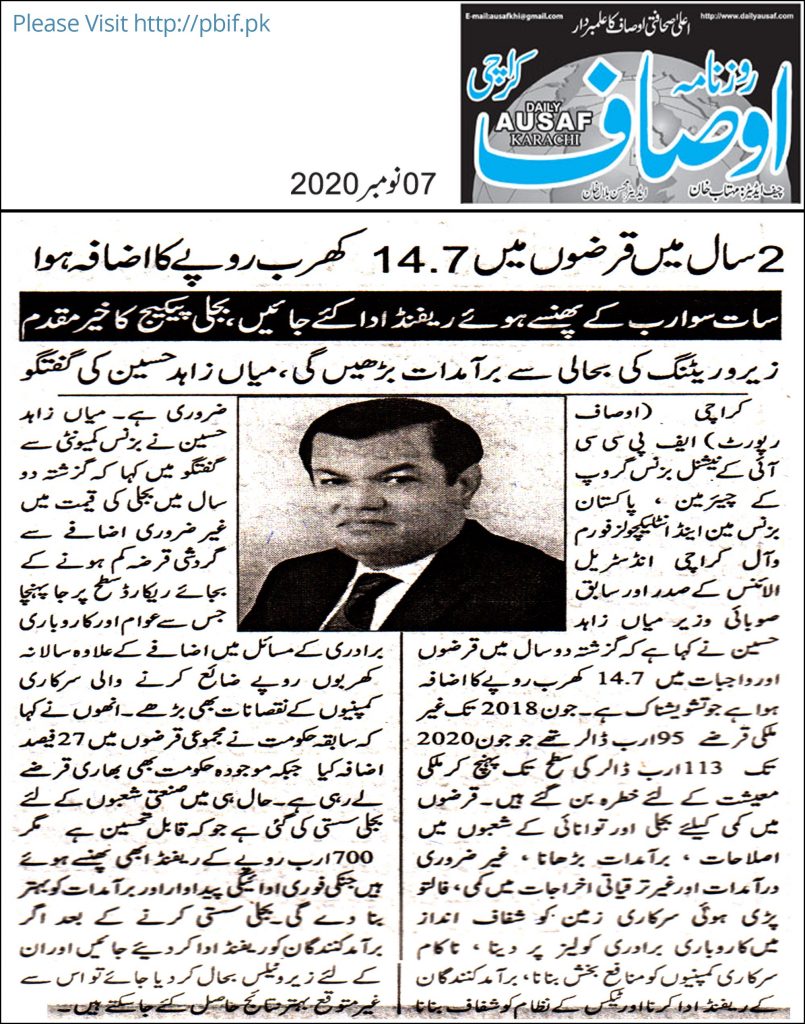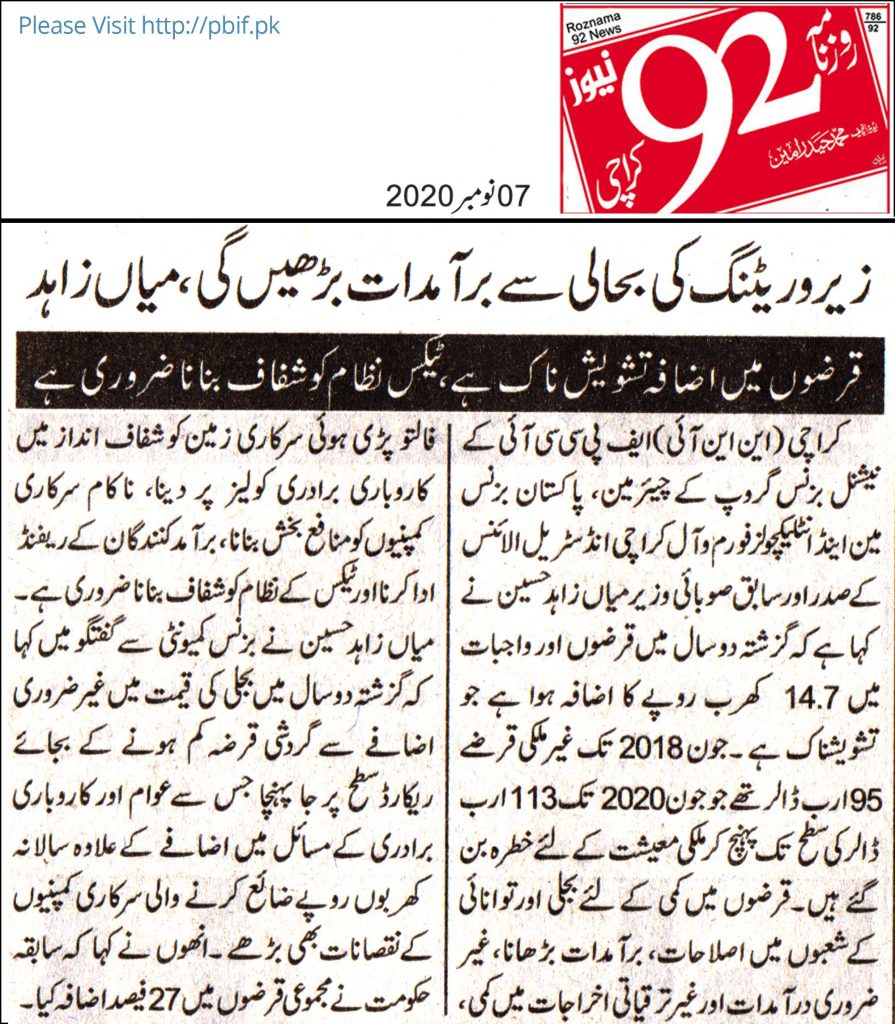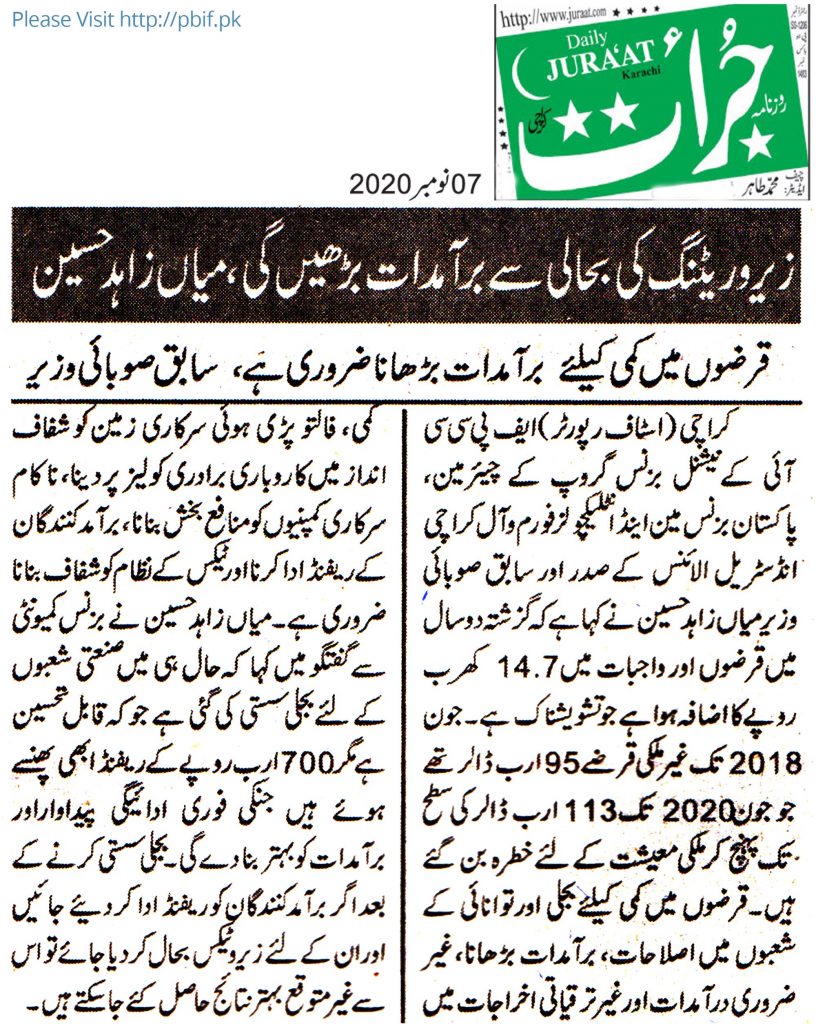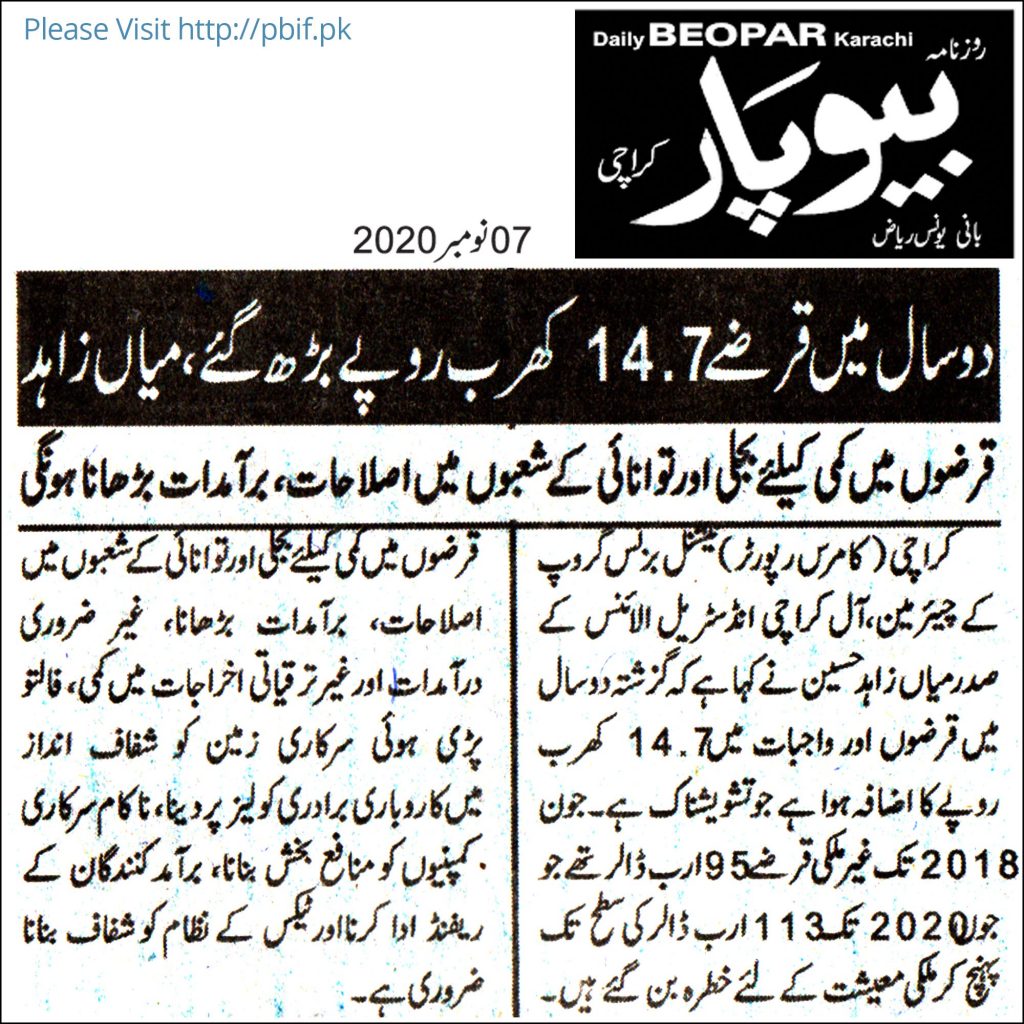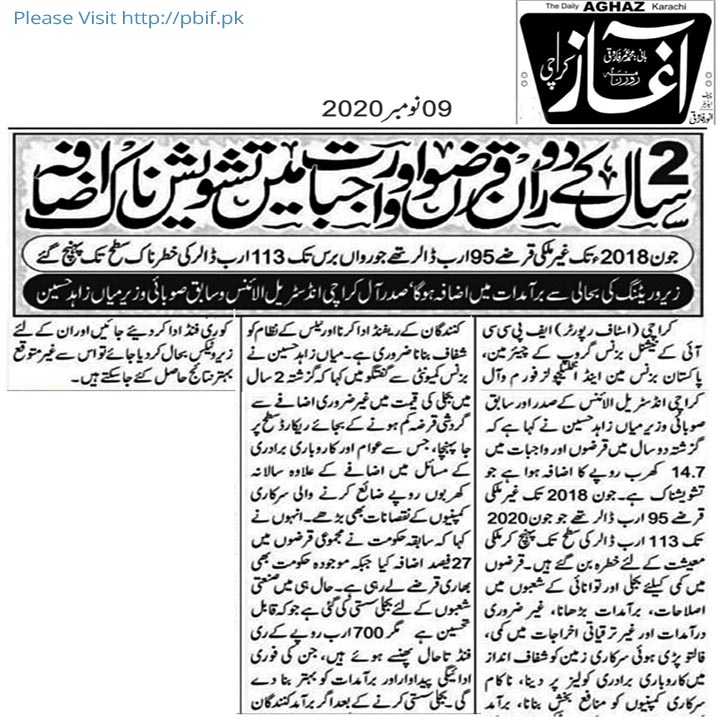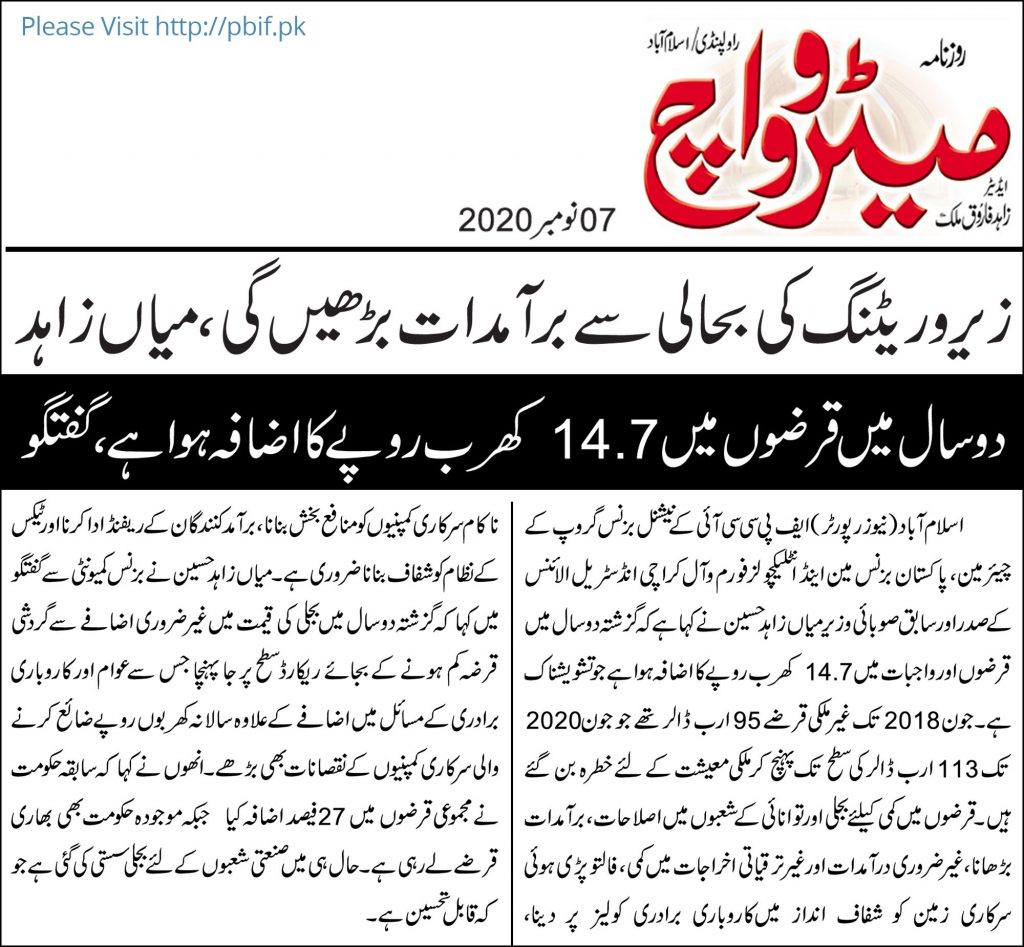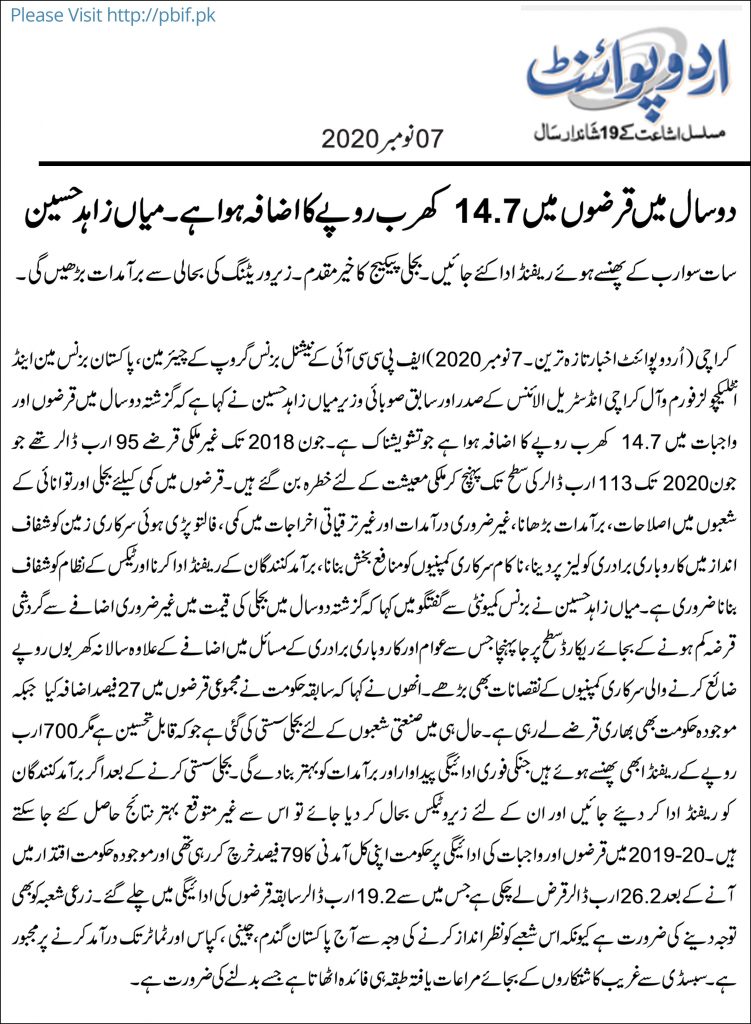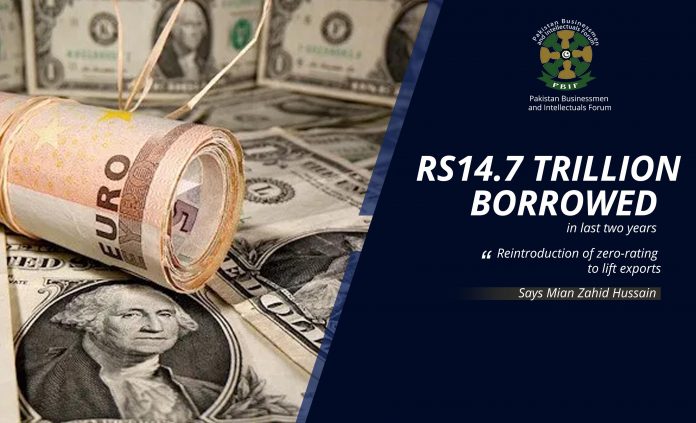
(November 06, 2020)
Chairman of National Business Group of FPCCI, President Pakistan Businessmen and Intellectuals Forum and All Karachi Industrial Alliance, and former provincial minister Mian Zahid Hussain on Friday said government borrowed Rs14.7 trillion in last two years.
Foreign debt stood at $95 billion on 2018 which jumped to $113 billion in June 2020 which is a threat to the economic stability.
Borrowing can be reduced by reforms on lower and energy sectors, increased exports and reduced imports, reducing unnecessary imports and non-developmental expenditures, leasing out state land to the business community through transparent auctions, tacking failed state-run companies, improving tax administration and paying refunds to exporters.
Talking to the business community, the veteran business leader said power tariff was irrationally increased over the past two years but it has not helped tackle circular debt rather it has jumped to record levels and it added to the losses of masses, business community and bleeding enterprises.
The former government increased total debt by 27 percent while the present government is also relying heavily on borrowing.
He said that now the electricity tariff has been reduced for the industrial sector which is laudable but refunds worth Rs700 billion are still pending which is hurting exports.
Payment of stuck up refunds coupled with cheap electricity and tax reforms can result in big boost to the export sector which is the only way to reduce reliance on borrowing, he added.
He said that the government should consider the revival of zero-rating for the export sector which will infuse confidence in the exporters which is imperative for the national development.
The government spent 79 percent of total revenue receipts on debt servicing in 2019-20. SO far it has secured $26.2 billion loans out of which $19.2 billion were used for debt servicing and this situation is not sustainable.
He said that the agriculture sector also merits some attention as despite being an agricultural country we are compelled to import wheat, sugar, cotton and tomatoes because farmers are being ignored and the incentives for agriculture sector hardly reach to the farmers, he said.
